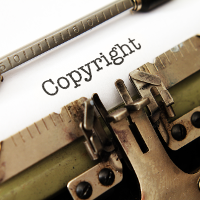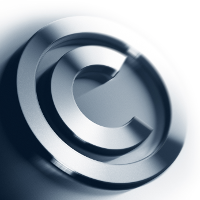 I am looking forward to hosting a keynote conversation with Grammy-winning composer, performer, songwriter, best-selling author, and essayist Rosanne Cash this week at CPIP’s The Evolving Music Ecosystem conference. One part of Rosanne Cash’s “music ecosystem” is the Artist Rights Alliance (ARA), where she serves as a member of the board. Read more
I am looking forward to hosting a keynote conversation with Grammy-winning composer, performer, songwriter, best-selling author, and essayist Rosanne Cash this week at CPIP’s The Evolving Music Ecosystem conference. One part of Rosanne Cash’s “music ecosystem” is the Artist Rights Alliance (ARA), where she serves as a member of the board. Read more
Tag: YouTube
Stream Ripping Emerges as the New Face of Music Piracy
Cross-posted from the Mister Copyright blog.
 As formats change and advances in technology continue to transform the way we listen to music, new methods of pirating content are never far behind. What started with the analog dubbing and bootlegging of cassettes forty years ago evolved with the digital age into CD burning and MP3 sharing, eventually leading to a chaotic illegal downloading landscape at the turn of the century that would force the music industry to develop novel anti-piracy efforts and distribution models. Read more
As formats change and advances in technology continue to transform the way we listen to music, new methods of pirating content are never far behind. What started with the analog dubbing and bootlegging of cassettes forty years ago evolved with the digital age into CD burning and MP3 sharing, eventually leading to a chaotic illegal downloading landscape at the turn of the century that would force the music industry to develop novel anti-piracy efforts and distribution models. Read more
Librarians’ Contradictory Letter Reveals an Alarming Ignorance of the Copyright System
 On December 14th, a group of librarians sent a letter to Congress explaining why they believe the Copyright Office should remain under the control of the Library of Congress. Written by University of Virginia Library’s Brandon Butler, the letter is a self-contradicting and uninformed response to recent recommendations on reform of the Copyright Office offered by leading members of the House Judiciary Committee. Read more
On December 14th, a group of librarians sent a letter to Congress explaining why they believe the Copyright Office should remain under the control of the Library of Congress. Written by University of Virginia Library’s Brandon Butler, the letter is a self-contradicting and uninformed response to recent recommendations on reform of the Copyright Office offered by leading members of the House Judiciary Committee. Read more
Three Years Later, DMCA Still Just as Broken
By Matthew Barblan & Kevin Madigan
 In 2013, CPIP published a policy brief by Professor Bruce Boyden exposing the DMCA notice and takedown system as outdated and in need of reform. The Failure of the DMCA Notice and Takedown System explained that while Section 512 of the DMCA was intended as a way for copyright owners and service providers to work together to fight infringement in the digital age, the notice and takedown system has been largely ineffective in managing the ever-increasing amount of piracy. Read more
In 2013, CPIP published a policy brief by Professor Bruce Boyden exposing the DMCA notice and takedown system as outdated and in need of reform. The Failure of the DMCA Notice and Takedown System explained that while Section 512 of the DMCA was intended as a way for copyright owners and service providers to work together to fight infringement in the digital age, the notice and takedown system has been largely ineffective in managing the ever-increasing amount of piracy. Read more
Attacking the Notice-and-Staydown Straw Man
Ever since the U.S. Copyright Office announced its study of the DMCA last December, the notice-and-staydown issue has become a particularly hot topic. Critics of notice-and-staydown have turned up the volume, repeating the same vague assertions about freedom, censorship, innovation, and creativity that routinely pop up whenever someone proposes practical solutions to curb online infringement. Read more
Notice-and-Staydown and Google Search: The Whack-A-Mole Problem Continues Unabated
After my last post discussing the necessity for notice-and-staydown to help copyright owners with the never-ending game of whack-a-mole under the DMCA, I was asked to clarify how this would work for Google Search in particular. The purpose of my post was to express the need for something better and the hope that fingerprinting technologies offer. Read more
Endless Whack-A-Mole: Why Notice-and-Staydown Just Makes Sense
Producer Richard Gladstein knows all about piracy. As he recently wrote for The Hollywood Reporter, his latest film, The Hateful Eight, was “viewed illegally in excess of 1.3 million times since its initial theatrical release on Christmas Day.” Gladstein is not shy about pointing fingers and naming names. Read more
Let’s Get Real About Kim Dotcom: The Indictment Clearly Alleges Felony Copyright Infringement
By Devlin Hartline & Terrica Carrington
After countless delays, the extradition hearing against Kim Dotcom began yesterday in New Zealand. Dotcom has been indicted on several charges, including criminal copyright infringement, racketeering, money laundering, and wire fraud, in connection with his notorious Megaupload website. Read more

